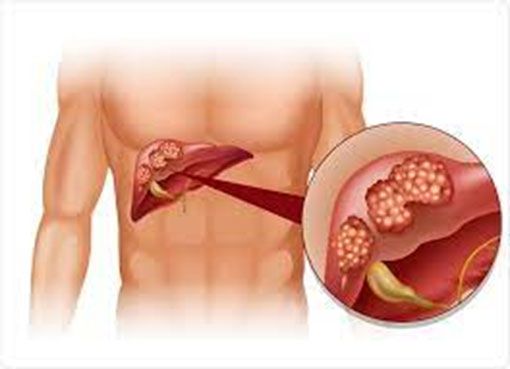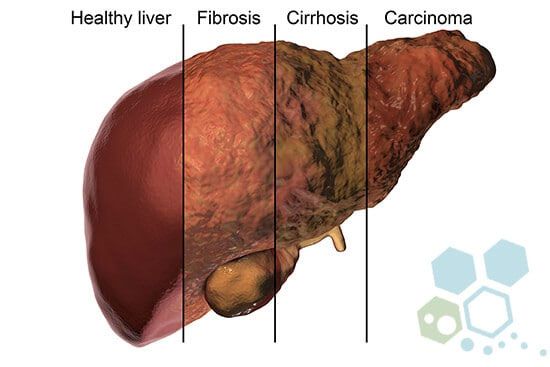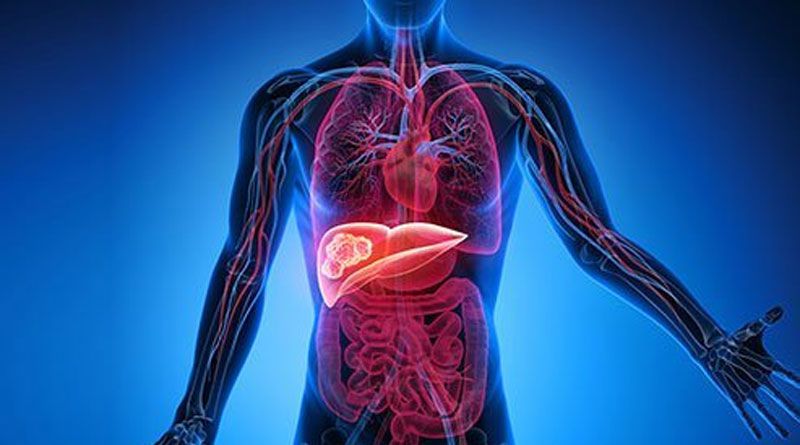The liver is one of your body’s most hardworking organs, performing a variety of vital duties. And, according to health experts, everyone should be concerned about liver health, mainly since cases of liver cancer have been on the rise in recent decades.
Dr. Sandeep Nayak, MBBS, DNB, one of India’s best oncologists, says, “The liver is one of the organs that people may not think about or talk about much, but it’s a vital organ.”
The liver’s primary function is to filter toxic compounds from the blood, which are then expelled from the body. It also produces bile, a chemical that aids fat digestion and converts what you eat and drink into energy-producing nutrients.
When abnormal cells grow at such a fast rate that they obliterate normal cells, liver cancer develops. Hepatocellular carcinoma is the most prevalent type of primary liver cancer, which begins in the liver tissue. Another kind, known as metastatic liver cancer, starts elsewhere in the body and spreads to the liver.
According to oncologists, the problem is that in the early stages of liver cancer (and other liver illnesses), there are frequently no signs. However, you should know a few things about the disease, such as who is at risk, when to get screened, and how it is treated.
Who is the most vulnerable to liver cancer?
People most at risk for liver cancer have other liver illnesses such as cirrhosis, chronic hepatitis B, chronic hepatitis C, and non-alcoholic fatty liver disease. People with a family history of cancer are also at a higher risk.
Liver problems are frequently associated with drunkenness, which stigmatizes them.
The oncologists claim that millions of people suffer from liver illness and aren’t necessarily alcoholics.
Although alcohol is poisonous to the liver, it can raise the risk of cirrhosis if used for a long time. Cirrhosis is also caused by viral hepatitis and diseases such as obesity and diabetes.

When liver cells store too much fat, fatty liver disease develops. According to India’s most extraordinary oncologist, patients have excess fat around their abdomens and may also have diabetes, obesity, high blood pressure, and cholesterol.
What Does BMI Mean From a Health Perspective?
Hepatitis is caused by viruses that induce liver inflammation. Hepatitis C is a blood-borne infection that primarily affects those who use intravenous drugs or have received a blood transfusion before 1992. Although hepatitis C is curable, it can still result in liver cancer.
People with severe fibrosis or cirrhosis who have had their hepatitis C treated are at high risk of developing liver cancer. The virus has already caused scarring in the liver, and they still need to participate in a liver cancer surveillance program.
How can you know if you have liver cancer?
In the early stages of liver cancer, there are usually no symptoms. They have a more advanced sickness when they present.
Among the signs and symptoms are:
- A bulge beneath the ribs
- Abdominal pain on the right side or towards the right shoulder
- Jaundice (yellowing of the eyes or skin)
- Weight loss or loss of appetite that is unintentional
- Nausea or bloody vomit
- Fatigue
- Urine with a dark color
- Bloating due to a build-up of fluid in the abdomen
The oncologist from India advises that you should see a doctor straight away if you experience any of these symptoms. It’s not always a sign of liver cancer, but it’s always a good idea to get checked out.

Is it possible to lower your risk of liver cancer?
In some circumstances, liver cancer can be avoided if your risk factors are reduced.
One method to reduce the risk is to maintain a healthy weight. Eating a well-balanced diet that is low in processed foods and fat. Also, get lots of exercises.
Smoking and using alcohol in moderation are also beneficial. Alcoholism is a sickness, and cases of binge drinking have increased as the pandemic has progressed.
Alcohol must be confronted head-on and de-stigmatized. We need to talk about mindfulness with drinking, just as we need to talk about mindfulness with eating and mindfulness with exercise.
When should you undergo a liver cancer screening?
People at high risk for liver cancer, such as cirrhosis, hepatitis B, or hepatitis C, should be checked every six months.
Depending on the circumstances, liver cancer can be detected in a variety of methods. The presence of alpha-fetoprotein (AFP) in the blood can indicate liver cancer, cirrhosis, or hepatitis. A high level of AFP is thought to be a tumor marker. Ultrasounds, CT scans, MRIs, angiograms, and biopsies are some of the other tests that may be done.
It’s critical to get a physical exam every year and be aware of your family’s medical history.
Hepatitis C and B are treatable diseases that everyone should be tested for. Getting annual physicals is crucial for preventive medicine. Then, if you see any anomalies in your liver enzymes, follow up.
Treatment options for liver cancer.
The type of treatment you receive and your chances of recovery are determined by the liver cancer stage when found. Your overall health, how well your liver functions, what symptoms you have, and your AFP levels are all aspects to consider.
If you have a decent functional condition and the cancer is detected early, says Dr. Sandeep Nayak, a well-known Indian oncologist. It could be treated with a liver transplant or by removing a portion of the liver. People with early-stage liver cancer who have had a liver transplant have a 60% to 70% five-year survival rate. Other therapies include ablation therapy, which destroys tumors without removing them, and chemotherapy, immunotherapy, and loco-regional treatment, which involves injecting heat or radiation-emitting beads into blood vessels.

Namaste UI collaborates closely with clients to develop tailored guest posting strategies that align with their unique goals and target audiences. Their commitment to delivering high-quality, niche-specific content ensures that each guest post not only meets but exceeds the expectations of both clients and the hosting platforms. Connect with us on social media for the latest updates on guest posting trends, outreach strategies, and digital marketing tips. For any types of guest posting services, contact us on info[at]namasteui.com.

